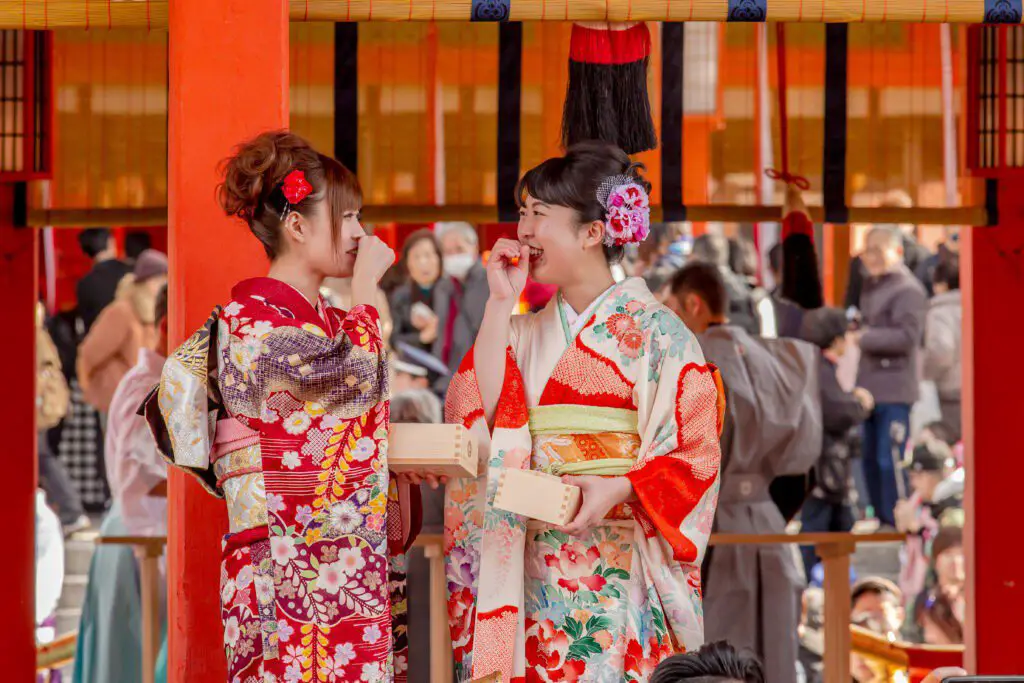In the English-speaking world, generally, very little is known about Chinese Philosophy and its rich history. The average person probably has heard of the Tao te Ching/Dao de Jing, but maybe they associate it with Winnie the Pooh. The late Supreme Court Justice Antonin Scalia said that Confucius was merely some mystic quoted on fortune cookies. And yet, one of the most popular courses at Harvard University, one that promises to change student lives forever, is Chinese Philosophy.
Although modern philosophy departments in the West struggle to accept many non-European thinkers as philosophers on the same level as figures such as Plato, Socrates, or Aristotle, there is no denying the real impact that the wisdom of these sages can make upon the lives of those who are willing to pay attention. But not everyone can enroll in a class, nor do they know exactly where to start.
Many only recognize Confucius, but he is hardly the only philosopher who sincerely impacted Chinese culture. Given the long and complex history of Chinese civilization, it’s no surprise that there is much more to discover than at first glance.
And, the truth is, Chinese philosophy has something to offer to everyone — even if you aren’t learning Mandarin Chinese or immersed in Chinese society today.
To begin this journey, let’s dive into the three most prominent schools of thought within ancient China. Although there are many more that have deeply impacted Chinese society today, including Chan Buddhism which evolved from Mahāyāna Buddhism hailing from India, the basis of any study of early Chinese Philosophy starts with the classic Chinese philosophers.
In this article, we’ll summarize some of the leading figures in Chinese intellectual history, key classical texts, offer some philosophy-specific vocab, and list additional resources for in-depth study.
Confucianism and Chinese Society
While Confucianism itself is often thought of as starting with Confucius, the philosophy is actually older than Confucius himself. He considered himself a transmitter rather than the original author of what he taught, with the term used in Chinese for Confucianists (Ruism; 儒家 Rujia) predating the well-known sage.
Some today have argued that using the term “Confucianism” in English is misleading, used by Christian missionaries to China for the sake of not only making relatable comparisons to Jesus but also converting Chinese locals to Christianity. In contrast, despite being translated into many dictionaries today to mean “Confucian(ist),” the term Ru (儒) doesn’t refer to Confucius himself but instead the virtues that Ruists cultivate and follow in their own lives. The character of 儒 can be broken down into two parts: ren (人; “a human being”) and xu (需; meaning “need” or “want”). In other words, a human being with virtues that are needed in humanity and society.
Confucianism can sometimes be interpreted as a religion.
While Confucius himself isn’t considered a true deity in the Western sense, the religious practices within Confucianism are considered a continuation of the rituals and rites, such as ancestor veneration, seen from the Xia to Zhou dynasties, eras in which Confucius considered himself a “transmitter of knowledge.” Furthermore, people may pray to Confucius in the way they pray to an ancestor or a spirit for wisdom and guidance rather than an omnipotent deity with direct impact on one’s life and its outcomes.
Despite this, Confucius himself actually had more of a skeptical outlook when it came to deities and worship. He has been quoted as saying, “Keep a distance from supernatural beings while showing them due reverence,” and, “If you are not yet able to serve other people, how can you serve supernatural beings?” in the Analects. Still, he did not deny their existence and participated himself in ancestor veneration, although his main focus was on this life, the here and now, and this natural world we all live in and experience as humans.
Confucianism believes that people can be taught, improved, and seek moral virtue through personal and communal effort, especially self-cultivation and self-creation. The very human relationships we have- myself with my family, my friends, my colleagues- are central to my existence as an individual, for no human being lives in complete isolation. Everything and everyone is linked in these relationships, and they are not confined to our immediate world but extend up and down a social ladder, going from our homes to even our local and national governments. Therefore, we all have a moral duty to cultivate virtue for the sake of a harmonious society with both ourselves as individuals and with each other.
Some of the core tenets within Confucian ethics that one is encouraged to cultivate include Rén (仁; benevolence or humaneness), Yì (義; heavenly virtue), Lǐ (禮; rituals and rites between humans), and Xiào (孝; filial piety).
Within this philosophical tradition, the three most prominent figures are Confucius himself, Mencius, and Xunzi. The most prominent texts within Confucianism are the Four Books and the Five Classics (四書五經; Sìshū Wǔjīng), and they contain the core teachings. The Four Books are The Great Learning, The Analects, (The) Mencius, and The Doctrine of the Mean. The Five Classics are The Book of Odes, The Book of Documents, The Book of Changes (better known in the West as the Yijing/I Ching), The Book of Rites, and The Spring and Autumn Annals.
If you want to read them in English, they are usually bundled together as a collected work.
The Path: Daoism
Also known as Taoism, this particular philosophy emphasizes living in accordance to the Dao (道; way or path), and believed that the Confucian interpretation of Dao was far too limiting and overly reliant on human beings being the center of said definition. This exaggeration of the importance of mankind, Daoism argues, was straying away from what Dao actually is: the Way of Nature as a whole.
Being the source of everything, the Dao is a series of contradictions, as nature itself is. There is no good without bad, no light without dark, no warmth without cold, and so forth. As a result, the Dao is both intangible and immutable, mighty and humble, and is the root of all things. Despite having free will to do so, humans are going against nature, including their own, and acting “unnaturally” will disrupt the harmony of the Dao. Therefore, the goal of the Dao de Jing is to cultivate oneself to the most natural condition, which is one of unity with the Dao.
Daoism counters Confucianism in this regard.
The Dao controls the course of things, and human society doesn’t have nearly as much importance. Nature is what it is and exists independently, and our societal rules and expectations are created, arguably artificially, by our own minds to begin with. Human society is full of egotistical pursuits, and therefore Daoism takes a much more skeptical approach towards society, insisting instead that living with nature and going with the flow of it is better. Daoism is a much more individualistic approach to how to live one’s life than Confucianism is, only placing more emphasis on inward individuality, relying on cultivating your spirit instead of material goals, wants, and needs.
Daoism is named after the text known as the Dao de Jing (道德經; aka Tao Te Ching) and is traditionally credited to the sage Laozi (老子), whose name translates to “Old Master.” The exact existence of Laozi has been debated over the centuries; many accounts claim he existed, while others claim the Dao de Jing consists of sayings from various people that have been romanticized into a single person. Nowadays, more scholars lean towards claiming he existed, with famous historian Sima Qian writing that Laozi met Confucius twice. However, regardless of whether or not the Dao de Jing was solely written by Laozi or multiple scholars, it remains one of the most influential texts in Chinese Philosophy today.
Aside from Laozi, the most famous Daoist sage is a man called Zhuangzi (莊子), whose text, also called the Zhuangzi, is one of the core foundational texts for Daoism. Many of the anecdotes, allegories, parables, and fables in the Zhuangzi are humorously written, fluctuating between tongue-in-cheek and endearingly earnest, usually told in the form of dialogue between real or imagined people, with opposing points of view. Many of his stories are metaphors, memorable in their profound simplicity, and the influence of the Zhuangzi as a text within Chinese society cannot be understated.
Similar to Confucianism, there are religious aspects to Daoism, and some argue that Daoism can be separated into philosophical (道家; Dàojiā) and religious (道教) branches, though others firmly reject this distinction, saying it is extremely Western to try and label in such a way; certainly not Daoist in nature to compartmentalize and limit things based on such definitions. However, this is likely due to the fact that beyond the two major texts mentioned, what’s considered spiritual Daoism becomes perhaps too supernatural for some people. For those who are more interested in advice for how to live one’s life and are uninterested in such practices, one can typically stick to reading both the Dao de Jing and the Zhuangzi in order to enjoy Daoist thought.
Besides the term Dao, some of the main core concepts within Daoism include Dé (德; virtue) Wúwéi (無為; action-by-nonaction, effortless action), Zìrán (自然; naturality, spontaneously). The concept of Yīnyáng (陰陽) is often represented in modern Chinese as the famous Tàijítú (太極圖) symbol ☯)
Legalism
Containing one of the first critiques of the Dao de Jing in history as well as being at odds with Confucius, the philosophy of Legalism was born from Han Feizi (韓非), who was a Han prince. The teachings attributed to him are in a book named after him, the Hanfeizi, though neither the text nor Hanfeizi himself are hardly the only Legalists.
Similar to Confucius, Hanfeizi was quite concerned with social harmony, however, he vehemently disagreed with him that cultivating good virtues would bring balance and peace. Instead, he argued that human beings were born selfish and self-serving, and they would always remain that way and thus needed to be overseen with harsh rules and regulations to maintain peace. Expecting humans to ever behave morally unless there was some kind of reward is foolish.
Legalism has often been compared to Machiavellism, and it’s easy to see why.
In order to work with the apparent selfishness of human nature, the best thing a ruler could do was encourage participation in society in ways that would benefit the nation (such as service in the government) all while feeding their individual selfish needs for gain and recognition.
In comparison with Confucian teachings that focused on a ruler having good behavior to set an example as well as Daoist teachings that the best kind of ruler was one who was hardly interfering, Legalists believe that it is absolutely vital for a ruler to have absolute power backed by military might. This was especially important to avoid the political and social unrest of being overthrown. Such thinking was almost immediately embraced, and the unification of China carried out by the first Emperor, Qin Shi Huang, was due to his fervent embrace of Legalist doctrines.
Major concepts of Legalism include the strict enforcement of widely known laws (法; Fǎ), accountability of names (刑名; Xíngmíng) and another interpretation of Wúwéi, in which a good, enlightened ruler can do absolutely nothing and still intimidate his subjects into obedience by fear.
There is a more recent translation of basic writings from Hanfeizi by Burton Watson but many prominent writings about Hanfeizi are not available in English translation.
Can Learning Chinese Philosophy Really Help Me?
Everywhere we go, people are trying to live their best lives however they can. Social media almost constantly assaults us with images and videos of strangers who have seemingly succeeded, and concepts like “mindfulness” have become trendy buzzwords to make a quick dollar instead of a genuinely Buddhist practice. There’s a new self-help book out every day, a new slogan or expression to try and mold your life out of as you sludge through your 9-5. But how often do they stick? How often do our lives change?
Philosophy can seem at first abstract and out of reach, and given the stereotype of the mysterious Orient, Chinese Philosophy may appear to be holistic mumbo-jumbo that can’t possibly be applicable to life today. And yet, the problems of truly living your life, of living out this precious time we have on the planet persist.
What does it mean to “live well”? Does it mean finding your authentic self to discover or even expand your personal happiness? Does it mean living in harmony with your community or living according to nature? Can such self-awareness be achieved? By exploring the key classical texts of traditions such as Confucianism, Daoism, or even Legalism may surprise you with their answers, causing you to pause and think about yourself in ways that you may never have before.
The wisdom has been there all along, ready to be your tool in this exciting journey of self-discovery. Will you take the plunge?
More Resources for an Introduction to Chinese Philosophy
Much of Chinese intellectual history, especially looking at early philosophical concepts, is often demonstrated through parables and metaphors. For beginners, these illustrated guides with both the English translation and original Chinese by Chinese cartoonist C.C. Tsai make it easier to explore key ideas clearly:
- The Analects: An Illustrated Edition – Confucius
- The Way of Nature: An Illustrated Edition – Zhuangzi
- Dao De Jing: An Illustrated Edition – Laozi
- The Way of Zen: An Illustrated Edition – Buddhism
- The Art of War: An Illustrated Edition – Sun Tzu
Some additional books that provide additional insight into the different philosophical traditions (and won’t break your budget):
- An Introduction to Chinese Philosophy: From Ancient Philosophy to Chinese Buddhism
- Readings in Classical Chinese Philosophy
- Taking Back Philosophy: A Multicultural Manifesto
And of course, if you’re already learning Mandarin Chinese, you may want to check out Classical Chinese, too!


